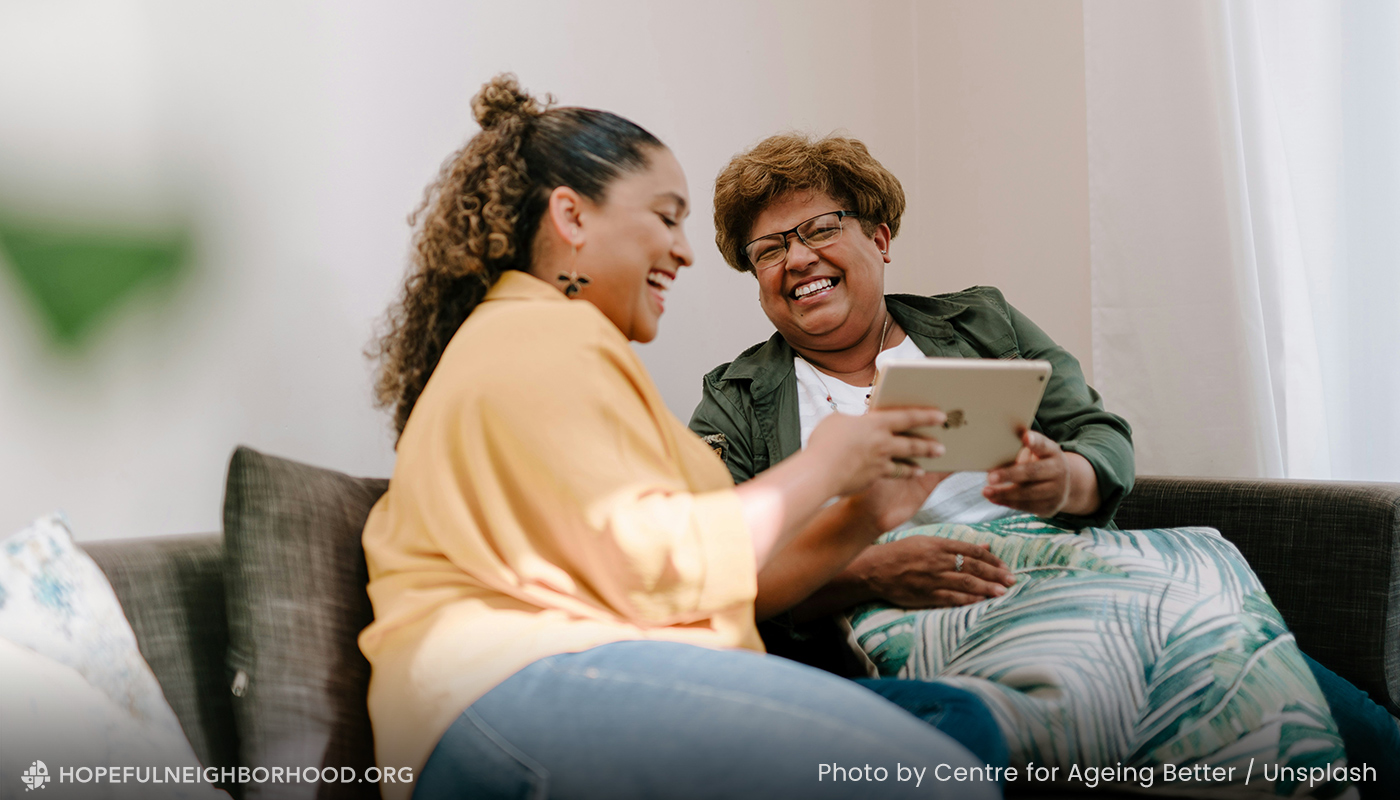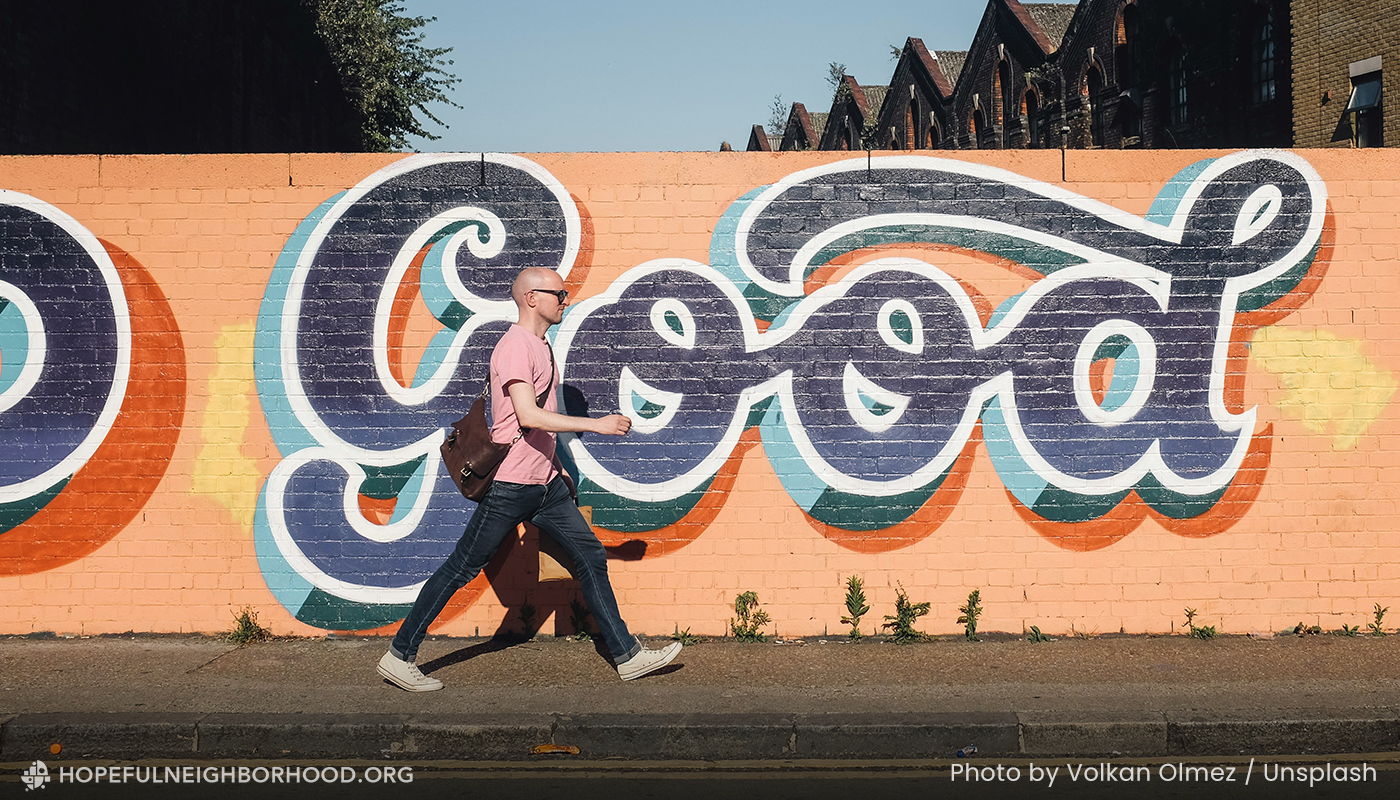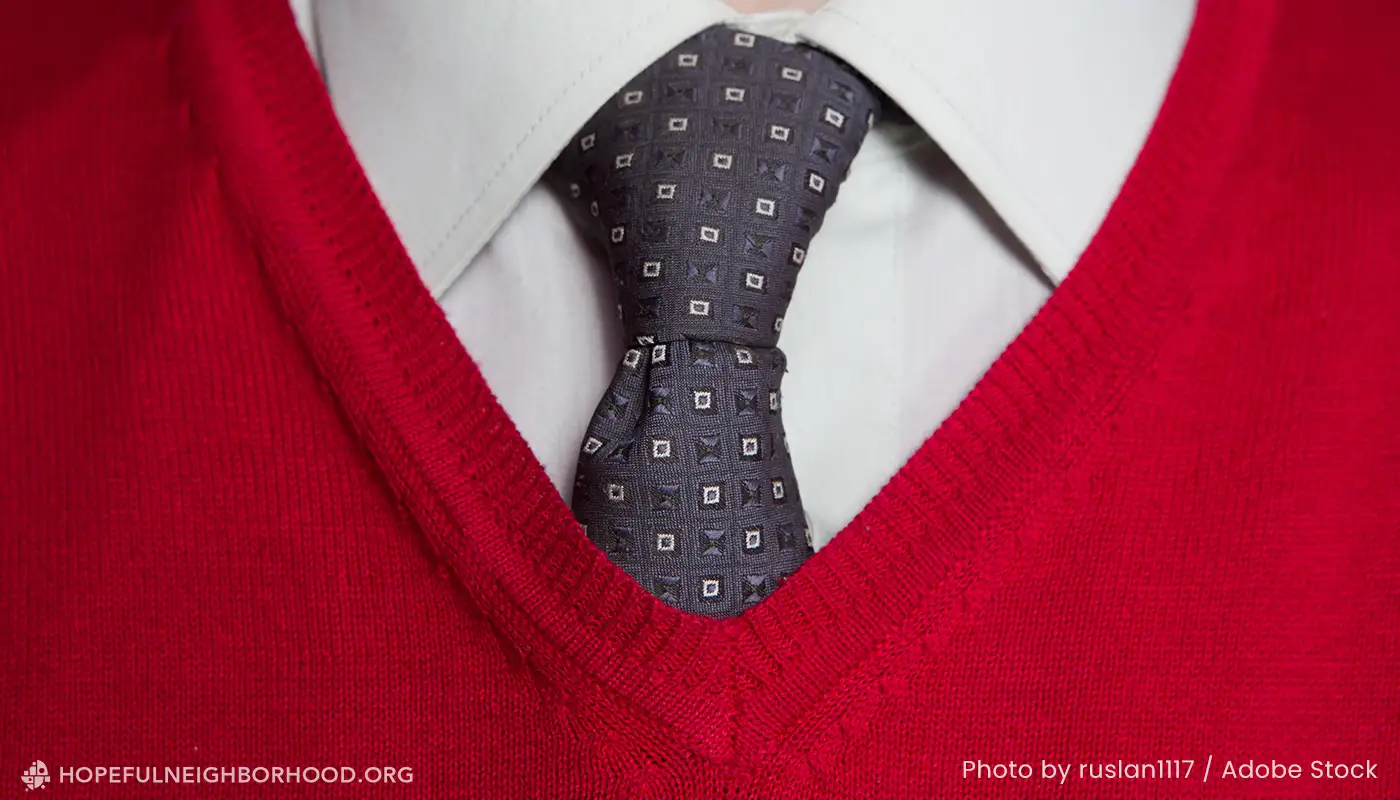This blog post is the first in a three-part series by Dr. Mary Manz Simon. Mary met Fred Rogers while writing an article about the famous television personality, and they developed a long-distance friendship in the following years. She wrote these posts to share his words of wisdom with The Hopeful Neighborhood Project so we, too, can learn about neighboring from one of the best.
My husband pointed out the headline.
“Popovich has no regrets telling fans to stop booing Leonard.”
I don’t follow basketball, so I didn’t recognize the names, but I was astonished and delighted that someone had publicly stepped forward to stop disrespectful behavior in a rowdy crowd.
Mean-spirited behavior on a school playground is eclipsed by adult nastiness. In today’s world of partisan politics and hateful rhetoric, not even the U.S. Congress is immune. Public name-calling makes the evening news. Rude outbursts fracture families. Neighbors pit themselves against neighbors online and in-person.
And so I wonder, “What would Mister Rogers say?”
His words echo across time.
“I like you just the way you are.”
The soft-spoken man in the zippered sweater repeated that line to millions of TV viewers for almost 30 years.
As disrespect becomes more normalized, I often think back to my conversations with Fred Rogers. What began as an assignment to write a magazine cover story on the legendary children’s television personality resulted in a long-distance friendship that continued for years. Today, I long for a return to the civility he modeled.
Fred looked for the good in others. This belief formed the basis of how he defined respect. This virtue was a gift he brought to every relationship.
Onscreen and in real life, Fred’s playing field was level. He valued everyone. Whether a guest was 4 or 40, Latino or Asian, in a wheelchair or standing tall, Fred celebrated every person as a special human being. When it came to the young children who were the focus of his work, it was obvious Fred didn’t merely like them—he respected them—each and every one.
That sense of respect went beyond mere acceptance. Fred dug deeper. As a result, the courteous, thoughtful way in which he treated others added a layer of calm to personal interactions. I visited his Pittsburgh office as a writer to ask questions, but Fred wanted to learn about me. Fred looked for connecting points—ways to acknowledge and build on our common humanity. He demonstrated that everyone matters and he wasn’t hesitant to show that. This supportive attitude was empowering.
His respectful attitude and polite behavior set a high bar. I can almost hear the affirming words, “You have worth.” That’s true in a public setting, high-powered business meetings, and everyday life. How do I honor the neighbor who isn’t neighborly? Can I be respectful of the neighbor who installed the dense privacy fence? Will I avoid repeating the gossip about a community busybody? I can’t control the behavior of others, but I can manage mine.
When a person talks nonstop, I can ask questions to stay engaged in the conversation. Attentive listening shows respect.
When a neighbor adopts a stand on a major issue that is totally opposed to what I believe, I can still listen. I can learn why she has that opinion. Seeking to understand others shows respect.
If someone fails to follow through on a commitment, I can offer to partner with that person in the future by sharing the load. Helping others shows respect.
Simple actions like these make a difference. I learned a timeless truth during my conversations with Fred Rogers: When we look through the lens of respect, it’s easier to see the good in others.
That’s an approach to life worth sharing.




0 Comments